Ants are common garden pests that can be present in garden beds. While it is necessary to control pests, one must also know that ants are able to provide some great benefits to your plants.
However, an ant infestation is another story.
Some types of ants can be a problem. This is especially true for the ones that bite, such as fire ants and farm ants. Carpenter ants can also be a nuisance since they can damage wooden supports or even trees.
If the number of ants in your garden beds becomes too alarming and you are in dire need of ant control, consider the tips in this article.
- Related article: Ants in House Plants
Why Do Ants Get Into Raised Garden Beds?
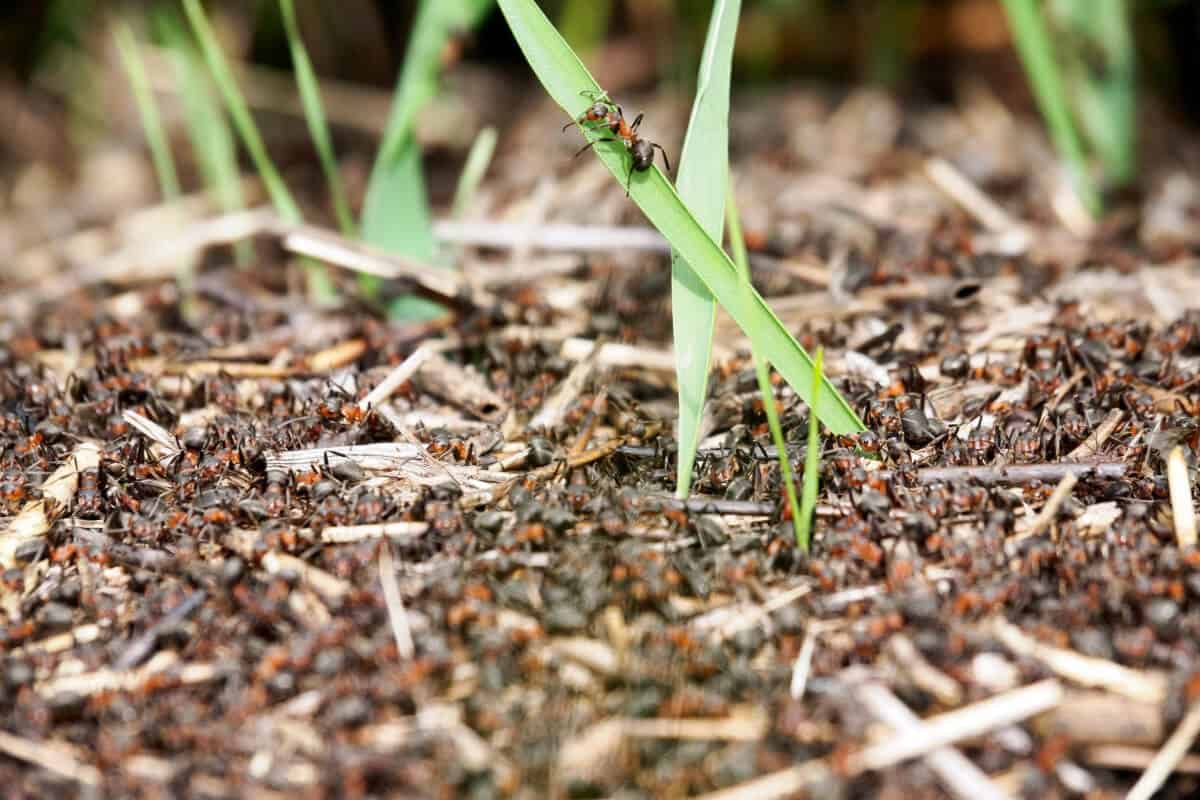
You might be wondering why the ant population in your house chose to build their nest on your raised garden bed. Here are some reasons:
1. Garden Beds Are Full of Nutrients
Vegetable garden beds are an ideal location for their nests because it has the nutrients and warmth that they need.
Ants help in facilitating and moving nutrients found in garden soil. Along with creating their nests, they aid in soil aeration. In traditional gardening, aeration allows your plant to absorb most of the nutrients and water that they need.
2. Garden Beds Provide a Food Source
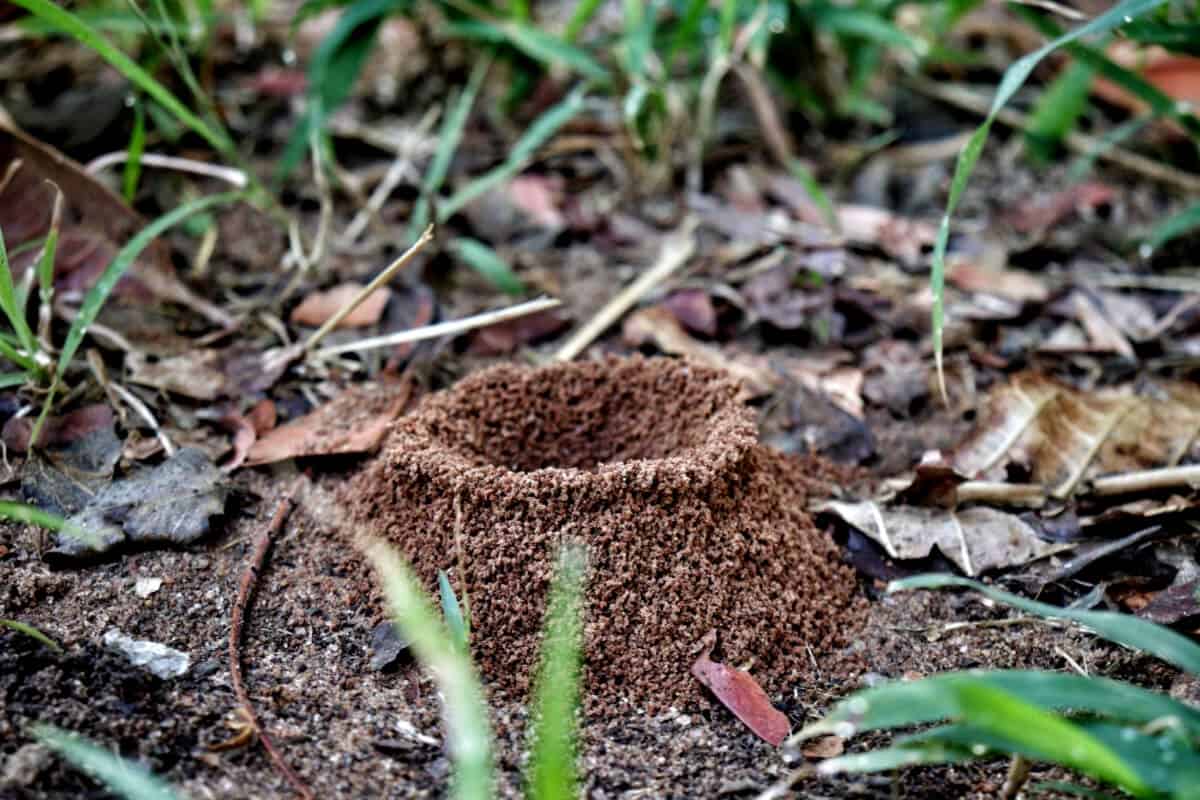
Ants help to control the populations of harmful insects that might be present in garden beds. These include aphids, whiteflies, scale, mealybugs, and other insects that suck the sap from plants.
They particularly favor aphids, which are tiny insects that can be present in huge numbers. Aphids can considerably weaken your plants and open the way for other parasites.
Ants have a symbiotic relationship with aphids. In exchange for honeydew which aphids excrete, ants protect them from their predators.
Ants also feed on both living and dead insects as well as other organic material. This has helped control pest populations in garden beds and sped up the decomposition process as well.
This is why ants are part of many farmers’ Integrated Pest Management strategies as effective biological control agents.
3. Garden Beds Offer Ideal Soil Conditions
Raised garden beds tend to be drier than most. This condition is particularly very attractive to ants as they need dry soil to thrive.
How to Get Rid of Ants in Raised Garden Beds
If ants are causing concern in your garden experience, it might be time to get rid of them through the following methods:
1. Keep the Soil Moist
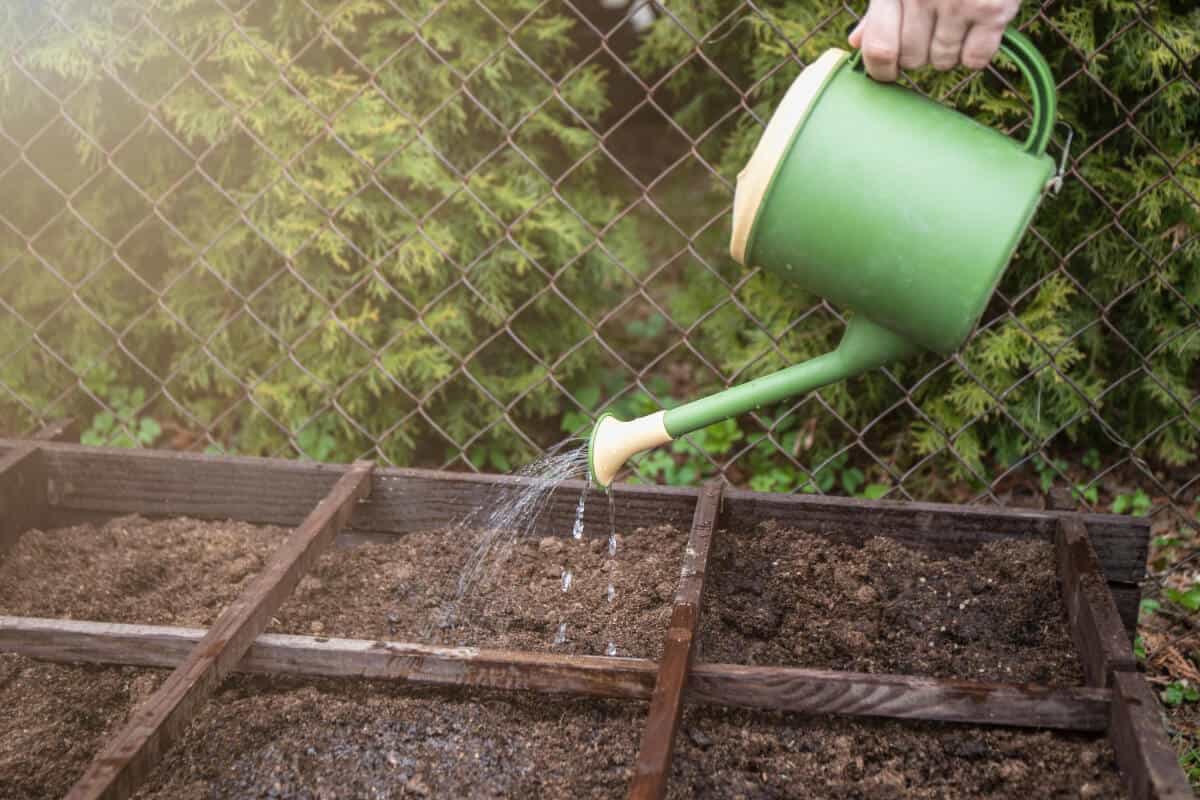
As mentioned above, ants cannot survive in wet conditions. The best and easiest way to get rid of them then is simply to water your garden bed often to maintain moist soil.
2. Use Spices and Coffee Grounds
Using spices that ants dislike will repel them without killing them. One of the most effective is cinnamon, which is certainly not cheap but works like a charm.
You can sprinkle ground cinnamon on bed gardens, or place cinnamon sticks around the borders of the bed.
The latter usually lasts longer, as the powder can easily be washed away with rainfall or dispersed through the wind and will need to be applied again.
This method can work to get rid of existing ants and also to avoid more from coming into your garden beds. Cayenne pepper is a good alternative if cinnamon is not available.
If you have brewed coffee grounds, sprinkling them into the soil will yield the same results and at the same time, fertilize it.
3. Food-Grade Diatomaceous Earth (DE)
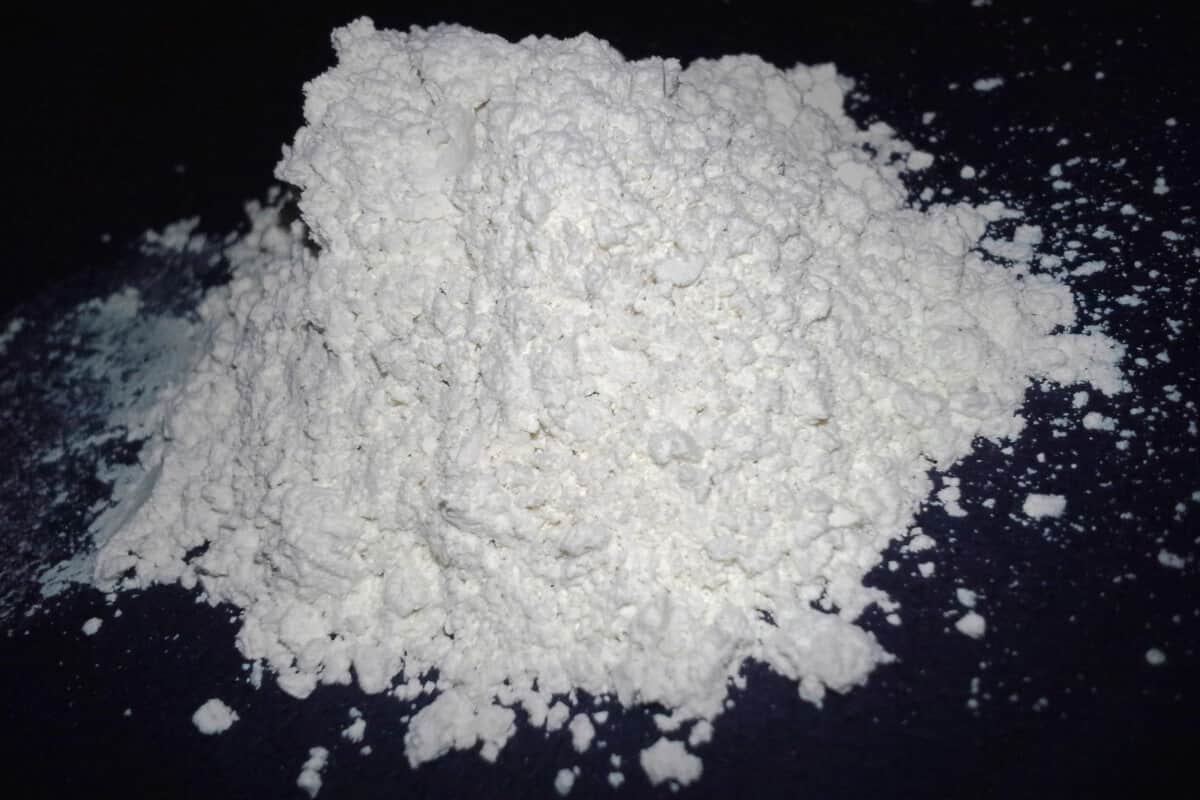
This powder is made out of fossilized hard-shelled algae called diatoms.
Although in powdered form, DE is still able to penetrate the exoskeletons of ants and cause them to dehydrate.
It’s slower than other methods since it only works with direct contact and ants survive for up to two weeks before dying of dehydration.
Diatomaceous Earth has no adverse effects on plants or other animals, and it also works to kill other pests, such as cockroaches and slugs. Moreover, it is an affordable method.
Just be mindful that diatomaceous earth loses efficacy in wet conditions, so always apply it on dry soil.
4. Borax and Sugar or Honey
Borax works as a powerful poison that kills any ant that ingests it. By mixing it with sugar or honey, ants will be inevitably lured to it.
The sweeteners will disguise the taste of borax and trap them into taking it back to the nest and serving it to their queen.
Once the queen is gone, it will also kill worker ants that stay with her and finally mark the end of the entire colony.
Place this in small amounts near ants’ trails or even right at the entrances of their nest. This paste will also kill any ant that walks on it.
Borax is a natural compound that causes no harm to the environment. However, it is toxic to humans and animals so use it with caution. This method can also take a while to work.
If you don’t like making mixtures, you can simply scatter artificial sweeteners near the colony of ants and this will overstimulate their brain cells, cause them to malfunction, and lead to their death.
5. Nematodes
Nematodes are microscopic animals that resemble worms. They are very beneficial for gardens since they can kill pests such as moths, flies, and beetles, as well as ants.
Nematodes enter inside the bodies of these insects where they excrete harmful bacteria. It’s actually these bacteria that cause the insects to die in a matter of one or two days.
The only downside of using nematodes is that for them to thrive, the soil must be at a temperature between 42 and 90 degrees Fahrenheit.
6. Boiling Water
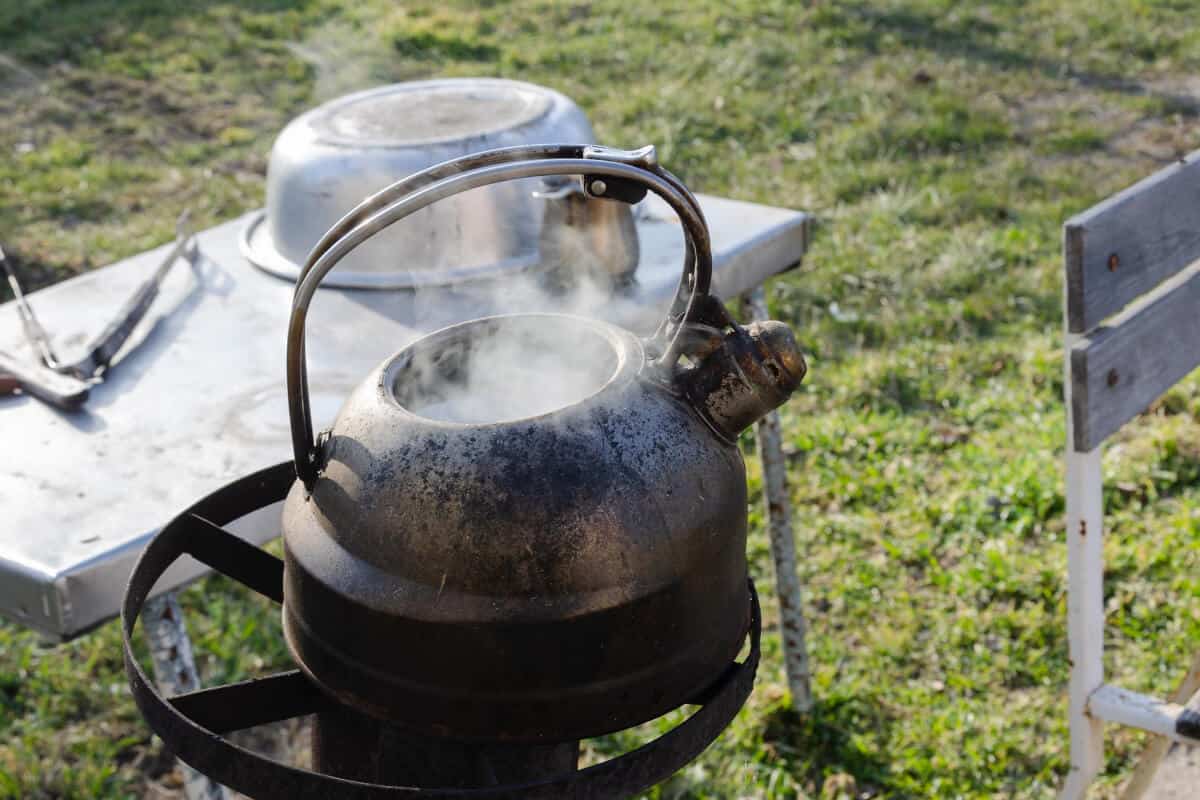
One of the oldest and most well-known methods, as well as the cheapest.
If you have located the ant nest, you can simply pour boiling water into its entrances.
Keep in mind that you might have to repeat this process more than once since anthills are built to withstand heavy rainfall and flooding.
Also, be aware that extremely hot water can damage your crops, so avoid using this method if the ant colonies are too close to your garden plants.
7. Orange Peel Spray
The perfect method if you haven’t located the colony. You can easily make this at home by boiling orange peels, or you can buy Orange Guard, which is pretty much the same, just more concentrated.
This method works thanks to the d-Limonene present in citrus peels. D-limonene dissolves the outer waxy layer that covers ants’ bodies. Without this, the insects quickly suffocate.
You can spray this product directly in your raised garden beds since it’s completely natural and doesn’t harm the environment, plants, or other animals.
8. Repellant Crops
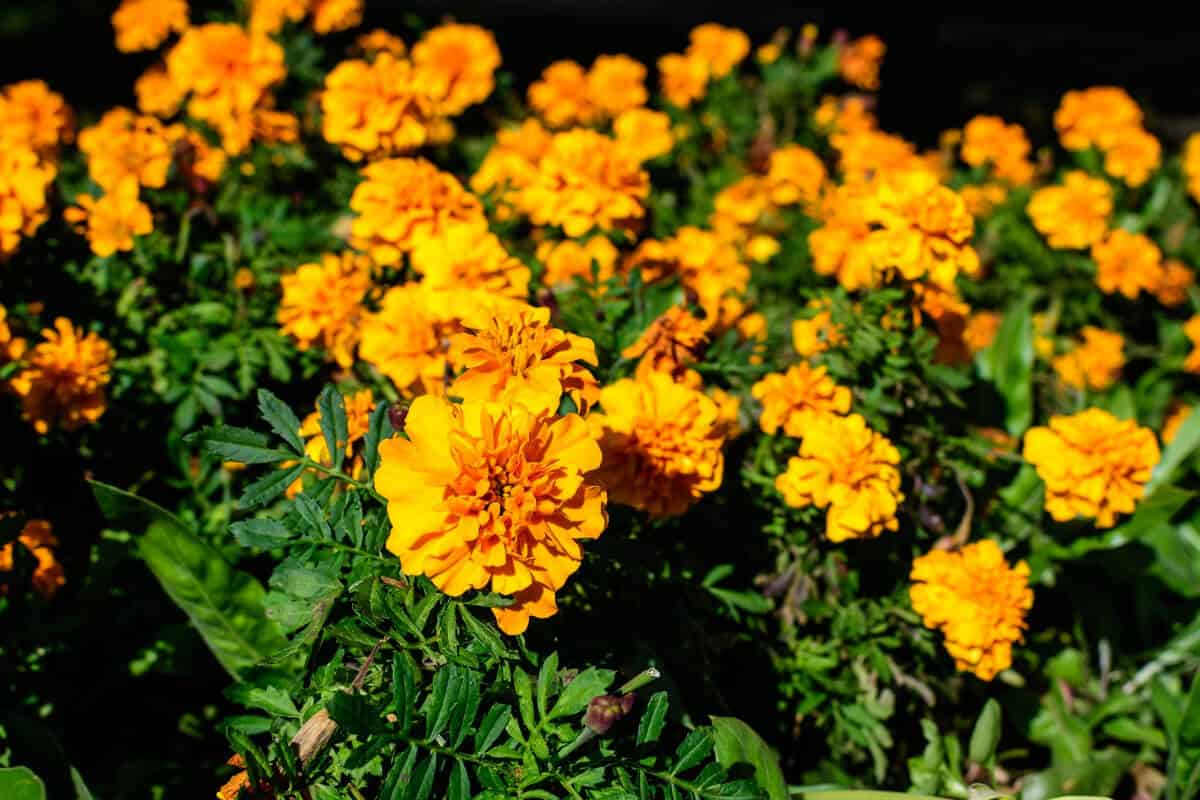
Many plants have scents that ants hate. By planting these essences next to your other crops, you will keep ants away from your raised garden beds.
An example is marigolds, which are beautiful flowers that also repel many other insects.
9. Dish Soap
Mix dish soap with warm water in a spray bottle. This solution can then be sprayed directly on plants.
It’s especially useful since it also destroys the pheromones ants leave to guide others of their own kind to a source of food.
Dish soap needs to be used when the weather is cold since it could otherwise burn plant leaves.
10. Get Rid of Aphids
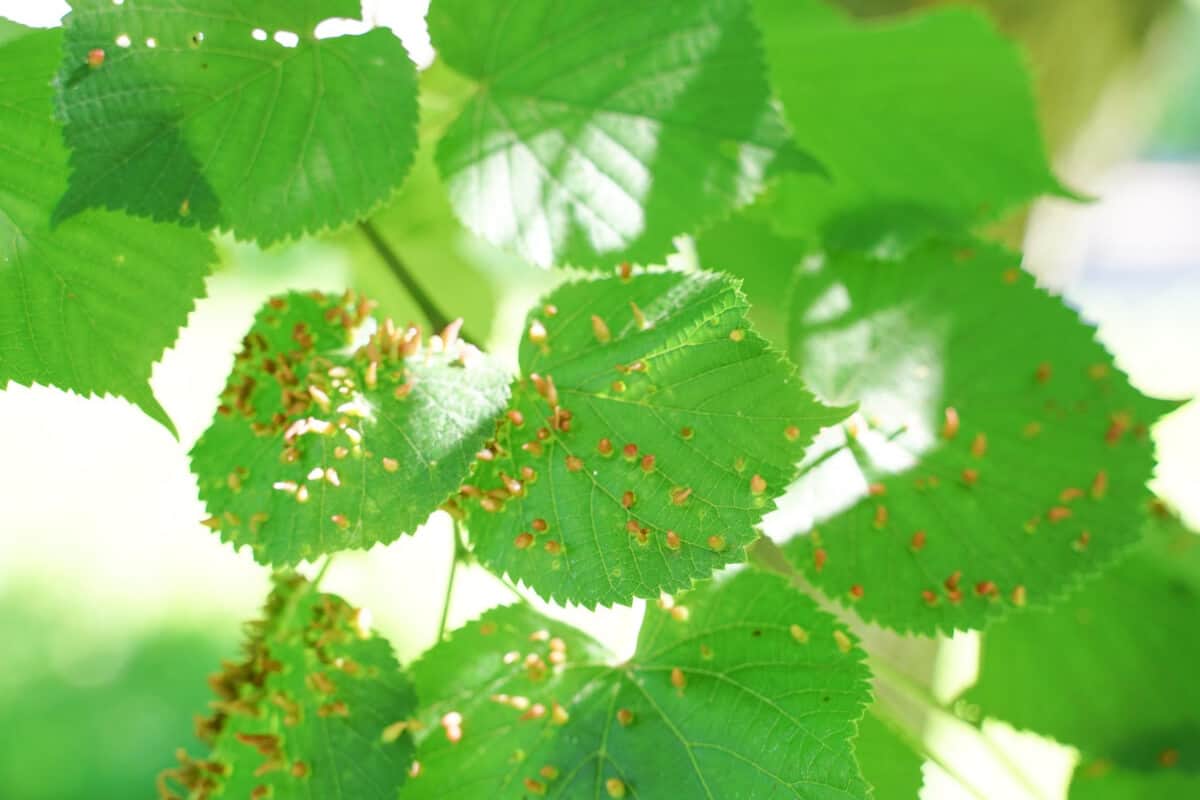
Since aphids are ants’ favorite food source, removing them can help decrease the chance of ants taking residence in your flower beds.
Final Thoughts on Ants in Raised Garden Bed
When the ant population in your raised garden bed becomes too alarming, it might be time to take necessary steps to control their population.
Always go for the more natural means such as keeping the soil moist, using cinnamon and cayenne pepper, or spraying an orange peel solution.
These are at the top of our recommendations because they solve the problem but do not cause any harm to the environment or the plants in your garden.
Additionally, practice good garden habits to avoid attracting ants and other pests. Keep them at bay and watch your garden bloom!
To know more about ants, check out these amazing articles:
- Kill Ants in Garden
- Ants in a Greenhouse
- Ants in Flower Pots
- Tiny Red Insects on Plants
- Fire Ants in Garden
Sources:

